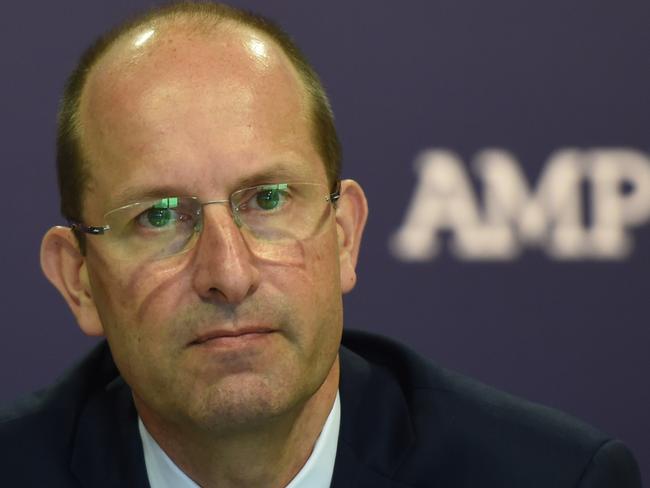Barefoot Investor: Financial planner in a panic over ethics of the industry
NOT all financial planners are created equal, despite what the royal commission findings show, so shop around and try before you buy, writes Scott Pape.
Barefoot Investor
Don't miss out on the headlines from Barefoot Investor. Followed categories will be added to My News.
NOT all financial planners are created equal, despite what the royal commission findings may show, so shop around and try before you buy.
TIM ASKS: Am I in the wrong job? I am a financial planner. No, seriously please keep reading ... I got into the industry after being retrenched, as I was looking for something that would pay better than an admin job. I do my best to provide advice that is free from bias and not tied to products. Trouble is, sooner or later my boss is bound to notice and move me on. How do I help Aussies with their finances and still put food on my table?
BAREFOOT REPLIES: The old saying “Don’t hate the player, hate the game” is true in financial services.
The royal commission is great, but unfortunately it tends to tar everyone with the same brush. The overwhelming majority of financial planners and mortgage brokers are good, hardworking, ethical people like you.
It’s the game that sucks.
It’s been set up by the banks and AMP. It’s called “vertical integration”, and it’s basically where the banks manufacture products and then employ planners to sell them. If you’re working in a Holden dealership, you won’t be selling Fords. Hopefully a recommendation from the royal commission will be to break up the vertical integration game. Yet what advice would I give you right now? Well, there are truly independent firms that charge hourly rates. Or there are financial counsellors, who do important work without flogging products.
HOW DO I FIND A FINANCIAL ADVISER?
WILL ASKS: I have read lots of advice about avoiding excessive fees charged by financial planners. Problem is that we still need one. My wife and I have $1 million in super — $400,000 in Australian Super and the rest with a non-bank retail manager (it’s an Asgard account with three managed funds). This is all great, but we’re in our early 50s and need some professional help.

BAREFOOT REPLIES:
You’ve done well!
Let me be clear about this, the biggest cost you’ll face in dealing with an adviser is “compounding fees”. I’ll give you a really simple example:
Let’s go to ASIC Money-Smart’s super calculator (moneysmart.gov.au), and punch in some numbers. I’ll assume you want to retire when you’re 67 and you earn the average wage. You have a choice between two funds: what the calculator calls a “medium high” share fund that charges 1.3 per cent in fees, and another fund called “medium low” that charges 0.3 per cent in fees. Let’s assume they both earn historical rates of return on shares on your $1 million fund. If you choose the lower fee fund, you’ll have $270,000 more in your account after 15 years when you retire. That’s why when it comes to choosing your adviser it’s incredibly important that you pay a true professional a reassuringly expensive one-off fee for independent advice (it could be upwards of $5000). However, make it a non-negotiable that you are invested in an ultra-low-cost portfolio that compounds without any tacked-on costs.
So, how do you find such an adviser? Well, just like any relationship, the first time is free — and then you start paying. So I’d suggest you go on dates with at least three financial planners before you commit.

BABY, I’M BAMBOOZLED
TERRY ASKS: I just had a long chat with a financial planner. The topic came to rolling over to their actively managed SMSF, and I asked them about using a low-cost, passively managed super fund instead. They then bamboozled me with talk of MERs, ICRs, fully franked dividends and tax credits, and how these factors mean that their actively managed fund would perform better than a passive fund (even after fees). Can you enlighten me?
BAREFOOT REPLIES: An example will work best here.
It’s like you go to your doctor for your annual check-up and say, “Do you think I should eat more fruit and vegies, and perhaps do 30 minutes of exercise each day?”
And the doctor replies, “Bugger that! I’m offering 20 per cent off ‘lypos’ this week. Wouldn’t you like some washboard abs, Tubby? Well, you can have them — next week. We’ll just suck that lard out like liquid. No Lycra needed, and better than eating bloody broccoli!”
Bottom line? The adviser just bamboozled you with bulldust. There are three things you need to understand. First, finance is the only industry where (in most cases) the more you pay the less you get. Second, you don’t open an SMSF (Self Managed Super Fund) for higher returns. Studies show that 80 per cent of managed funds fail to beat a simple index fund over five years, principally because of the fees managers charge. There’s no way they can guarantee higher returns. Third, you should walk away from any professional who tries to bamboozle you. Trust your gut!

YOUR BOOK IS STRESSING ME OUT
PRUE ASKS: I started reading your book last night and was discouraged when I read about your SMSF strategy. About two years ago, on advice from a financial adviser, my husband and I set up an SMSF, and we have since purchased a property with it. It was extremely stressful to set up, and the cost of ensuring compliance is ridiculous. My question is: should we close it (and how do we do this?), or would the financial and emotional cost be too high?
BAREFOOT REPLIES: I must admit it doesn’t look so good. For one thing, I’d be very wary of having the bulk of my super assets tied up in one investment property.
I’m yet to see a case where someone has bought a residential investment property via an SMSF that was actually a good deal for the client. Often they’re a three-way play — an accountant, a financial planner, and a property developer, who share in upwards of $50,000 commissions they load onto the purchase price of the property (plus the SMSF fees, plus the borrowing commissions). I’d also be very wary of the adjectives you’ve used in describing the process thus far: “extremely stressful” and “financial and emotional costs”. Sounds more like a colonoscopy than holistic advice. But I don’t have all the facts. So if I were in your shoes, I’d get some second opinions — firstly a valuation on the property from a local real estate agent, and secondly an assessment of the SMSF from an accountant with no links to the guys who set it up. Once you’ve assembled the facts, act quickly. I’ve never seen more time turn a bad property into a good one.

THERE’S something shocking that I learned about this week. Apparently, there’s been a spate of violent home invasions in which young thugs have been terrorising vulnerable pensioners, and it’s been going on for years.
In fact, one young thug was caught stealing $120 from a little old lady. And when the cops caught up with him, and questioned him on it, he repeatedly lied and said it wasn’t him.
Yet, when he went up against the magistrate this week, he not only admitted his guilt but admitted he’d lied through his teeth.
I’d say this young thug is heading for the slammer.
OK … so I just made all that up. There was no gang. No young thugs ripping off $120 from pensioners. But there is a gang … of wealthy, old banking executives who didn’t have to climb through a window — they were greeted at the front door. And, according to the Banking Royal Commission this week, they didn’t steal $120 — they stole $120 million. And that’s just Commbank, who the commission called the “gold medallist” in fee-for-no-service. Hell, they even slugged dead people fees for advice. For 10 years. Seriously, these guys are good! All up, across the industry, some 306,000 people have been charged a combined $216 million for services they didn’t get.
And in the case of AMP, the royal commission found they’d even systematically lied about it to the corporate cops (ASIC).
Yet let’s be clear — there will be no jail time. Instead, the bosses will apologise — via their underlings, who they’ll send off to be shot on the royal commission’s frontlines — and they’ll quietly retire on their multimillion-dollar bonuses.
But here’s the rub: at its core, the banking and finance industry is based on trust. You need to trust that the company you’re dealing with won’t rip you off, and that they’ll have your best interests at heart.
What we’ve seen at the royal commission suggests we can’t trust them. And that’s backed up by ASIC, which recently found that in the case of bank-employed advisers, in 75 per cent of cases the adviser didn’t act in the client’s best interests.
Can you imagine our young thug appearing before the judge: “Look, Your Honour, I’ve made mistakes. I’ve robbed hundreds of thousands of defenceless pensioners for years. So it’s clear what I really need to do is … address my internal processes.”
Yeah, nah. I’m with ScoMo on this one.
Lock ’em up.
Tread Your Own Path!
Originally published as Barefoot Investor: Financial planner in a panic over ethics of the industry


